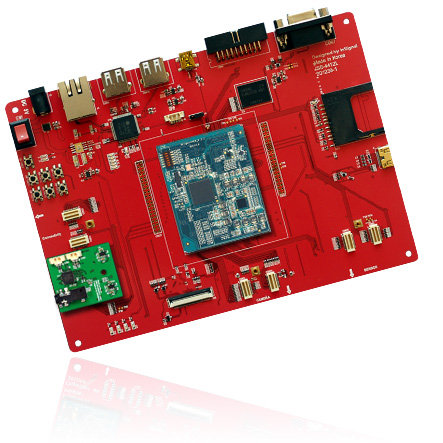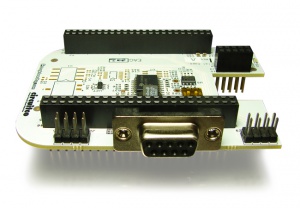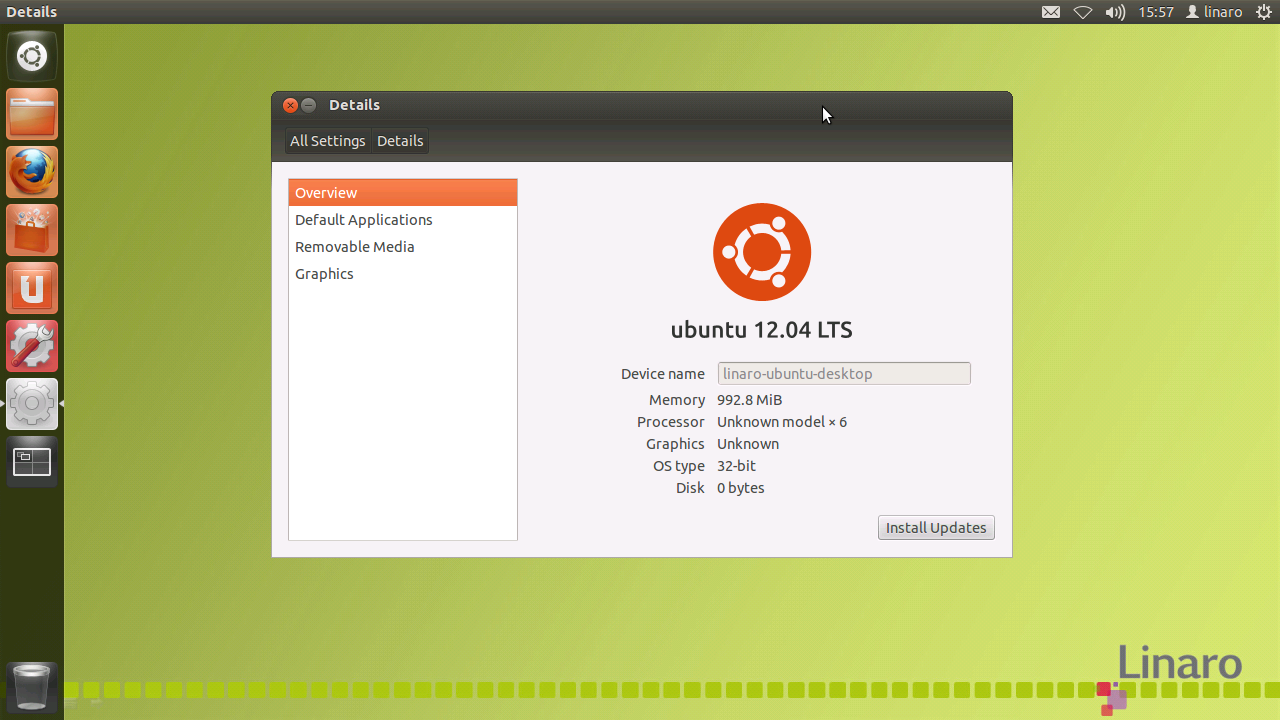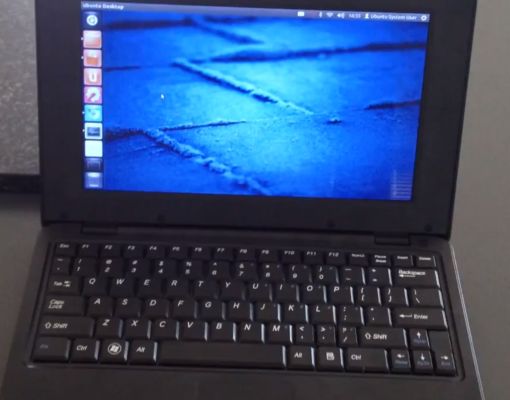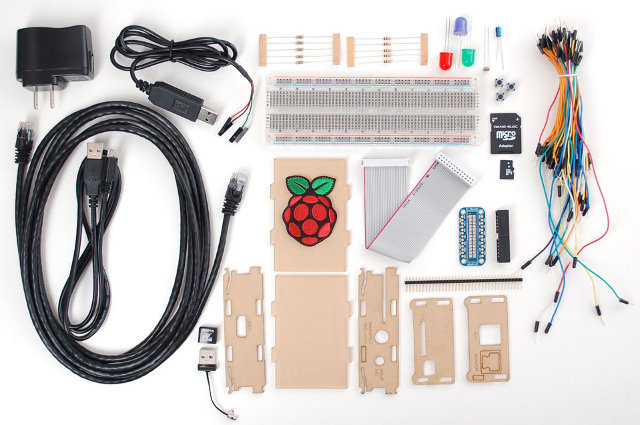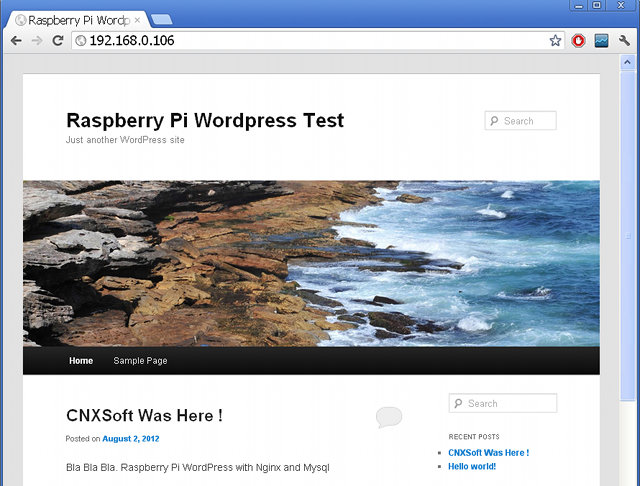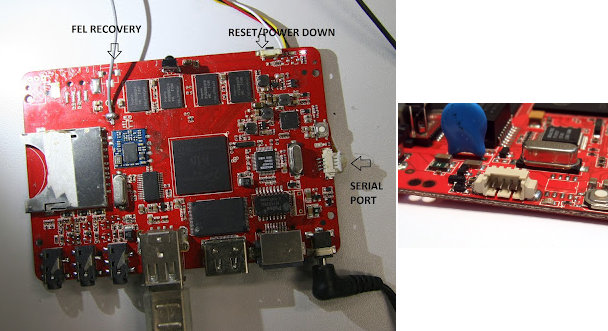As I wrote a list of the Top 10 ARM Linux development boards, I discovered that Origen 4 Quad development board based on Exynos 4412 quad core Cortex A9 processor is currently in development and will replace the Origen board (Samsung Exynos 4212). This board appears to be similar to Hardkernel ODroid-X board, but pricing won’t be as aggressive as it will sell for $199 (vs $129 for the ODroid-X) in the base configuration. Here are the specifications for the base version (ORIGEN 4 Quad Package-C): CPU Board CPU : Samsung Exynos 4 Quad Cortex-A9 core 1.4 GHz DRAM : 1 GB (POP Type) PMIC : S5M8767A Base Board HDMI support Ethernet (10/100 Mbps), SDcard 2x USB 2.0 Host, 1x USB 2.0 Device Serial, JTAG Connector support (Sub Boards) External I/F MIPI CSI/DSI , Parallel, C2C Sub Boards Sound Board: Realtek : ALC-5631Q-A ORIGEN 4 Quad Package-B is based on […]
Over 20 Capes are Now Available for the Beaglebone
BeagleBoard.org has recently announced that over 20 plug-in boards (called Capes) are now available for the BeagleBone, an open hardware board powered by TI Sitara AM335x Cortex A8 processor. Capes allow to expand the abilities of the board via two 46-pin headers. Each cape has those 2 headers as well, and up to 4 capes can be stacked on a Beaglebone as long as the pins do not conflict… Here are some of the available capes: BeagleBone LCD7 Cape – Features a 7-inch TFT LCD screen with 4-wire resistive touch and five user buttons. BeagleBone Camera Cape – Allows you to add a camera via QuickLogic CSSP camera interface solution connected via the GPMC (General Purpose Memory Controller) bus of the Beaglebone. BeagleBone Weather Cape – Includes temperature, barometric pressure, humidity and ambient light sensors. BeagleBone DVI-D Cape – Provides a DVI-D interface, which can be handy since there is no […]
Ubuntu 12.04 on ODroid-X Development Board
Yesterday, Hardkernel released the first version of Ubuntu for ODroid-X development board based on Linux 3.6-rc1 and Linaro Ubuntu Desktop 12.07. This is still early work, but here’s the current status: Linux Kernel 3.6-rc1 with gcc 4.7.1 Linaro toolchain SMP driven Quad-Core processing PMIC device driver USB 2.0 High-speed Host driver for Exynos-4412 HSIC interface Ethernet + USB Hub device driver LCD display driver HDMI display driver (Very early version and it may have HDMI 1.4a compatibility issues with some monitors) To do: Audio codec driver eMMC device driver Clock control driver 3D HW-GPU X11 driver (This may need couple of months) Power-off support WiFi module is not working with Ubuntu GUI. Hardkernel Wi-Fi module is not working due to missing driver There are 2 images: one for LCD display kits, one for HDMI output that can be downloaded via: BitTorrent – One file with both images? Very slow for […]
Rikomagic To Sell an AllWinner A10 Android & Ubuntu Netbook
Rikomagic, the company that sells the MK802 mini PC, is planning to sell a netbook based on AllWinner A10 processor that runs both Android and Ubuntu operating systems. This device looks very much like the H6 netbook with a 10″ 1024×600 display, 1 GB RAM, 4 to 8 GB flash. an SD card slot, 3 USD ports, audio in/out and a front camera. Android currently runs in the internal flash, and Ubuntu can be booted from an SD card. In the video below, Andy Kirby of Rikomagic gives an overview of the netbook and shows a demo of Ubuntu Desktop running from an SD card. The Linux OS seems to run relatively smoothly as he shows pages rendered in Chromium.However, hardware acceleration (both OpenGL and VE) is missing, and Youtube video playback is very slow as it is rendering in software. Open Office is also a bit slow, but it’s […]
15 Linaro OnAir Sessions about Android, Linux, Debugging and Software QA
Linaro has planned 15 virtual conferences between Monday, August 13 and Saturday, August 18, 2012. Those online events will deal with the work done at Linaro, including software optimization, software QA, Android and Linux kernel development, Open Embedded on ARMv8 and more. Those conferences are public and anybody can join. All times indicated below are GMT+07:00 (Bangkok), so you can either mentally convert the time (recommended), or click on the links below to get the date and time in your timezone. Exploring The Performance Impact of PGO and LTO on ARM– Mon, August 13, 5:00 PM Abstract: Profile guided and linked time optimisation (PGO and LTO) are two of GCC’s cross program optimisations that should improve both the startup and runtime of typical programs. We know that they basically work on ARM but don’t know the potential speed up or the work involved in proper support. This session will cover […]
Adafruit Launches Raspberry Pi Starter Pack for $69.95
The Raspberry Pi is supposed to be great for hardware prototyping, but you may not know where to start and/or depending where you live it might be difficult to buy the small components needed at a decent price. That’s where Adafruit Raspberry Pi starter pack comes into play. It includes a case, some cables and power supplies, as well as a breadboard and a whole bunch of components. The package includes: Adafruit clear acrylic Pi Box USB Micro-B Cable to connect the Raspberry Pi to a power source 5V 1A power adapter USB TTL console cable to be used to access the serial console. Useful to debug the kernel or if you run your device without display and/or network. 4GB SD Card Adafruit Pi Cobbler kit with GPIO cable for connection to the GPIO/I2C/SPI/Power pins. USB microSD card reader for loading the image onto the SD card. Large full-size clear […]
WordPress for Raspberry Pi using Nginx and MySQL
I’ve been wondering how the Raspberry Pi would handle WordPress. I’ve found some instructions using Apache 2, but this may not be the best server to use for this type of low-end hardware. nginx server requires less resources, and as it is what I already setup for this blog, I decided to give it a try on the Pi. I’ll provide all the detailed steps I followed below, but you can also download the compressed SD card image (113 MB), uncompress it and copy it to an SD card the usual way. After the system boots, find your Raspberry Pi’s IP address, type it in your PC’s browser, and you should see the page pictured below. If you want to login to the dashboard, the username is “admin” and the password “raspberry”. Instructions to Install WordPress on Raspberry Pi You can use your default Debian Linux distribution (e.g. Raspbian) if […]
HackBerry AllWinner A10 Board is Now Available for $60
The Hackberry “development board” is now available for sale on Miniand. This board powered by AllWinner A10 processor comes in 2 versions: 512 MB RAM version – Available now for $60 1GB RAM version – Available by the end of the month for $65. Both boards features a 4GB Flash, a SDHC slot, 2x USB 2.0 port, 10/100 Ethernet, Wi-Fi, HDMI & composite outputs, headphone & microphone ports and a IR sensor. The good thing is that serial interface and FEL connectors will be soldered on the board for easy debugging and recovery. The FEL recovery port allows to reflash the board using Livesuit. As a side note, Henrik, a developer involved in Allwinner A10 software development, has done some work to reverse engineer FEL USB protocol, wrote a small program to enter into Livesuit mode with an SD card (Go to the bottom of the page section “Forcing FEL […]


